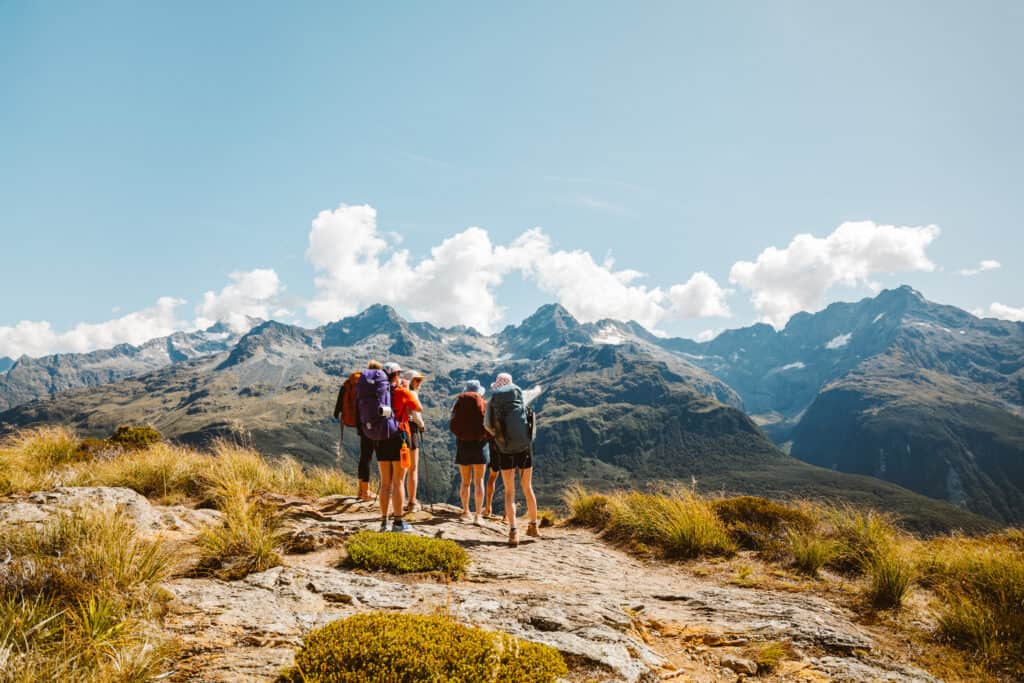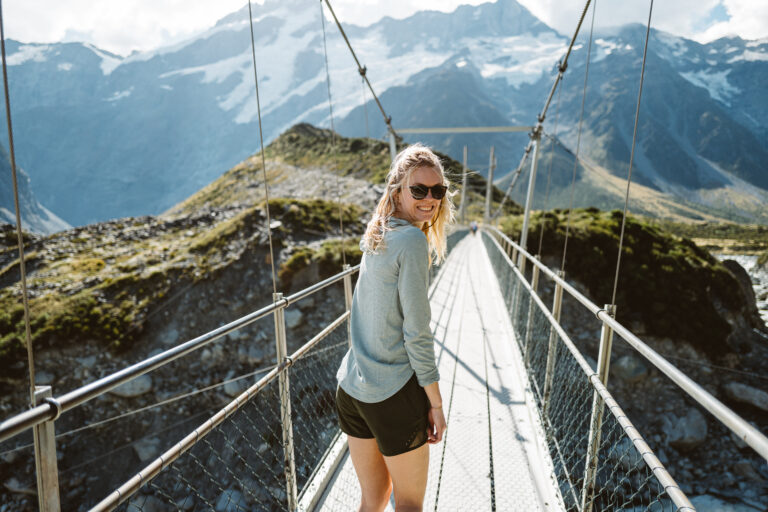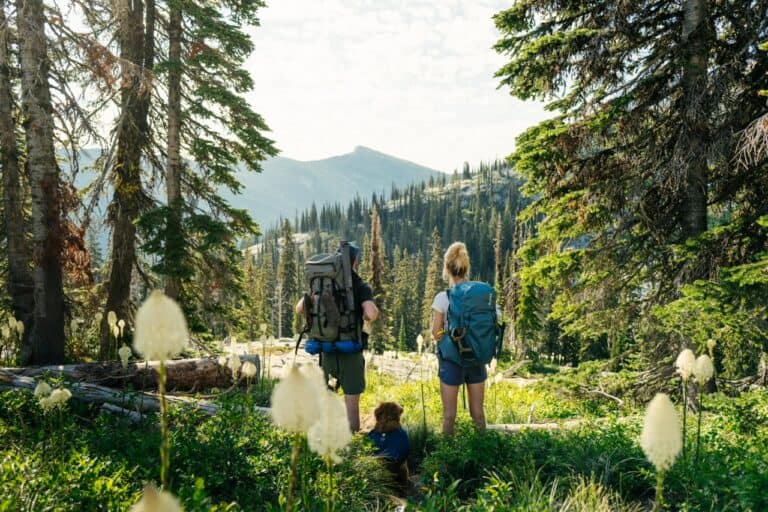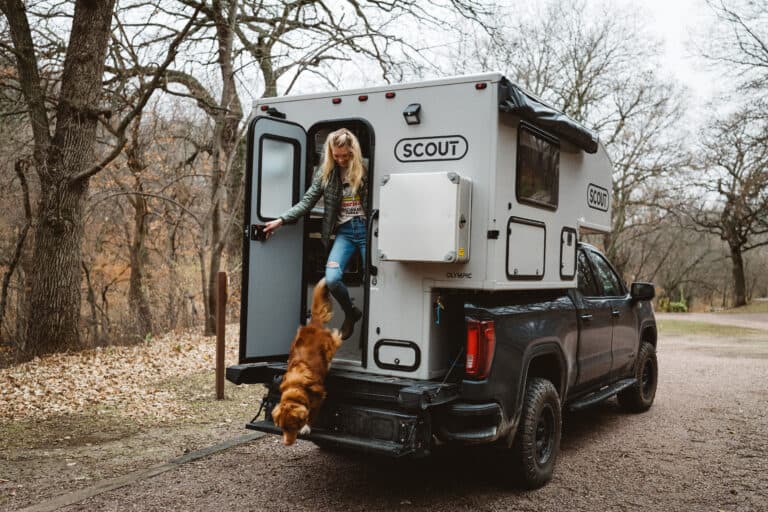10 Essentials for Hiking in New Zealand
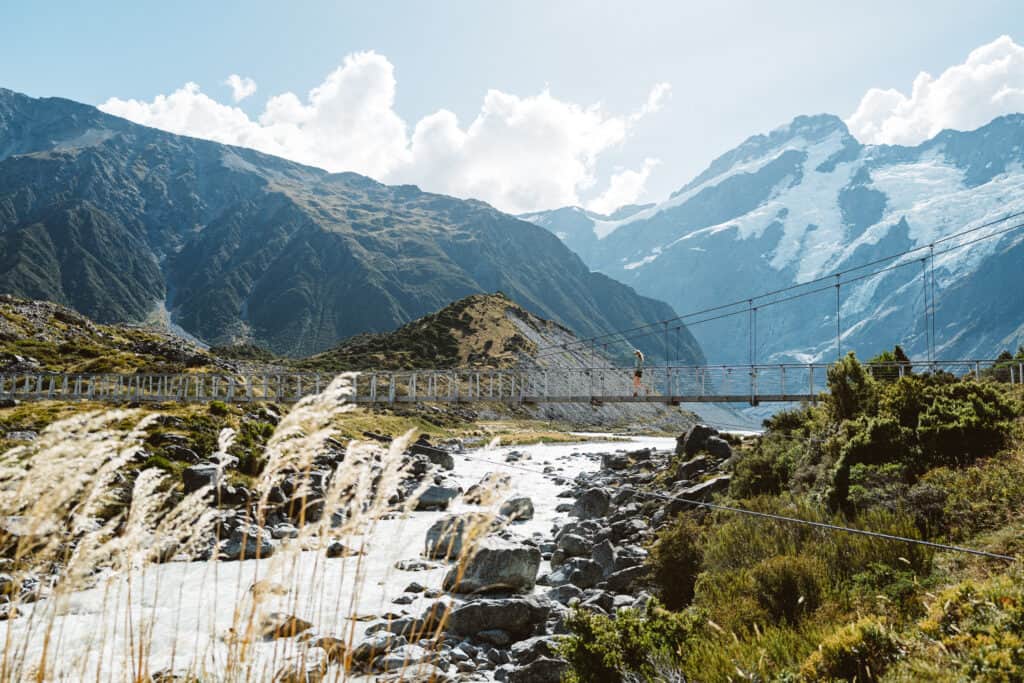
Knowing how to prepare for day hiking in New Zealand during the summer can be tricky when you begin to think about all the gear and layers you need to pack. The days are typically sunny and warm, and the heat from the sun is intense. But you’re also on an island and the weather can change quickly, especially in the mountains.
We recently spent a few weeks on the south island where we hiked a lot of miles and learned a few lessons along the way. Keep scrolling for the 10 essentials for hiking in New Zealand that we couldn’t live without, from what to wear to what to put in our daypacks to things we wish we would have brought.
1. Layers
Layers are so important when hiking anywhere, but especially when hiking in New Zealand. The summers are hot and with very little ozone layer, the sun is intense. That’s why protecting your skin with layers like lightweight pants and a sunshirt are so important. This REI Co-op shade hoodie was my go-to for every single hike we did while in New Zealand. It’s a great protective layer while still being breathable so you don’t get too hot.
It’s also important that you don’t forget warmer layers too, even in the summer. Since New Zealand is an island, the weather can change rapidly. It’s smart to always have at least a sweatshirt or light jacket with you in case the weather turns, or in case you get chilly once you reach the viewpoint. I always have a breathable base layer like this Patagonia R1 pullover and a light puffy jacket with me when I hike.
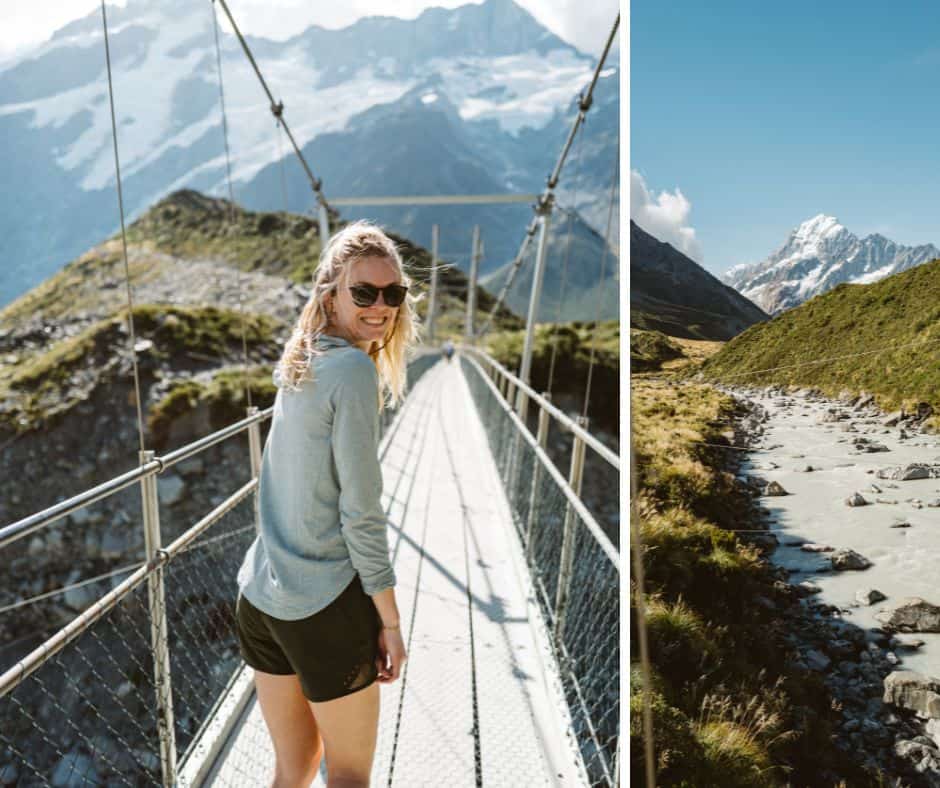
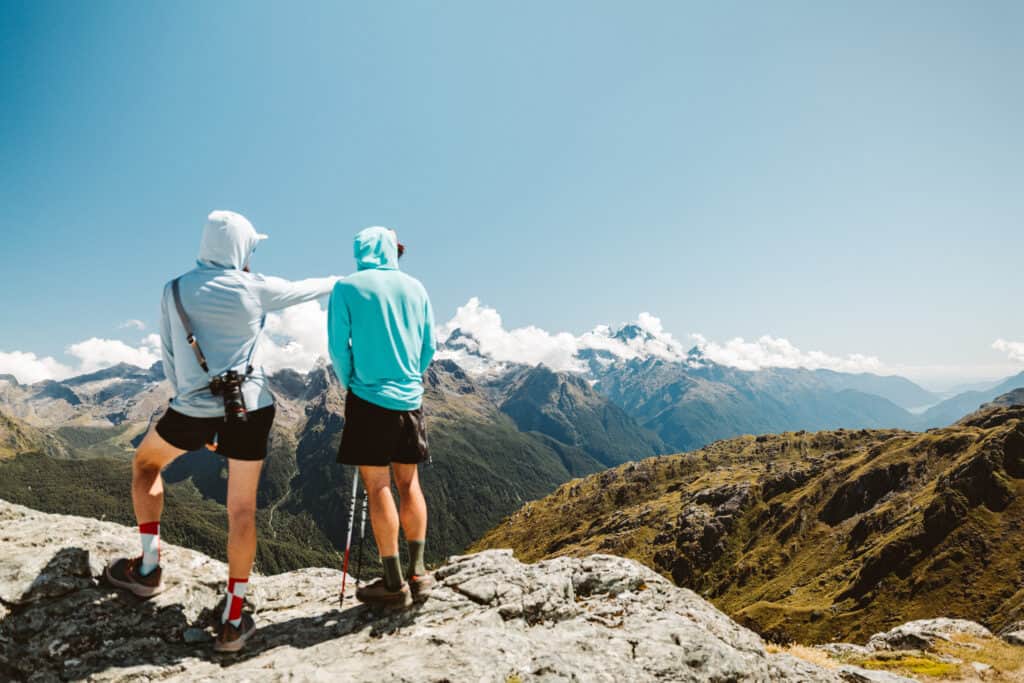
2. Good hiking boots or shoes
Hiking trails (or tracks) in New Zealand can be a little different than the hiking trails you’re used to in the US. While many of the tracks are well-maintained, they’re often quite steep and can potentially be slippery when wet or muddy. As with any hiking trail, the trail surfaces can also be uneven due to rocks or tree roots. That’s why it’s so important to have good hiking boots or shoes with ankle support and good traction, like these boots or these hiking shoes.
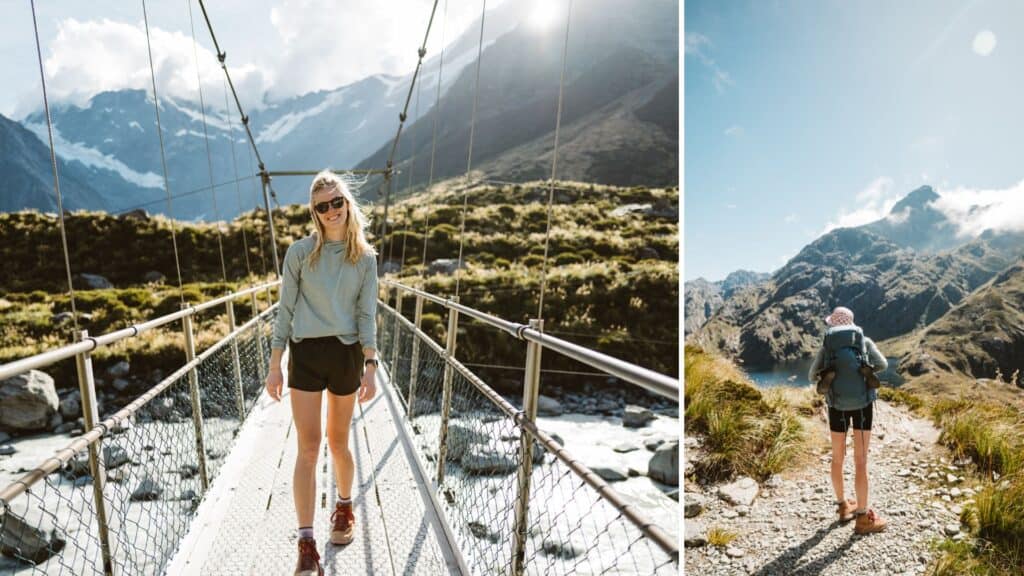
3. Lots of water
Like we mentioned earlier, summer hiking in New Zealand gets hot, especially if you’re on a section of trail that is exposed and doesn’t offer a lot of shade. Paired with the extra intense sun makes water so important. We always made sure we had a couple of Nalgene bottles in our packs for our New Zealand day hikes, along with some electrolyte tabs to keep us extra hydrated.
4. Snacks, snacks, snacks
Making sure you have enough fuel while you’re hiking is so important, especially if you’re hiking for multiple hours or in the sun – or both! We always make sure to have some snacks easily accessible in our daypacks, like these Honey Stinger Waffles and energy chews, or these Bobo’s Bars. We also like to pack trail mix, salami sticks, and gummy bears.
If we’re hiking for multiple hours (or days), we will stop by a local grocery store and pick up some ingredients for lunch wraps or even just pack an extra dehydrated backpacking meal and a small camp stove to boil some water. The freeze dried backpacking meals are a great way to get lots of protein without spending too much time preparing a lunch out on the trail.
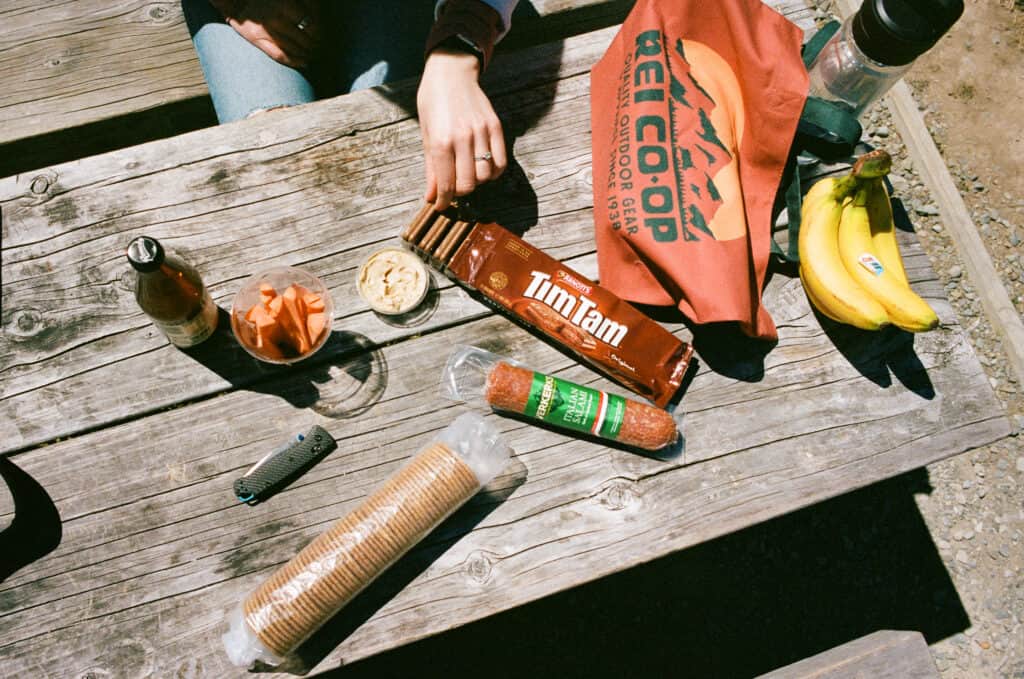
5. Sun protection
A few other key things you should keep in your pack at all times when hiking in New Zealand are mineral sunscreen, a good pair of polarized sunglasses (trust us, your corneas will thank you), and a hat to keep the sun off your face. These are small, but very important items that will make or break a summer day hike in New Zealand.
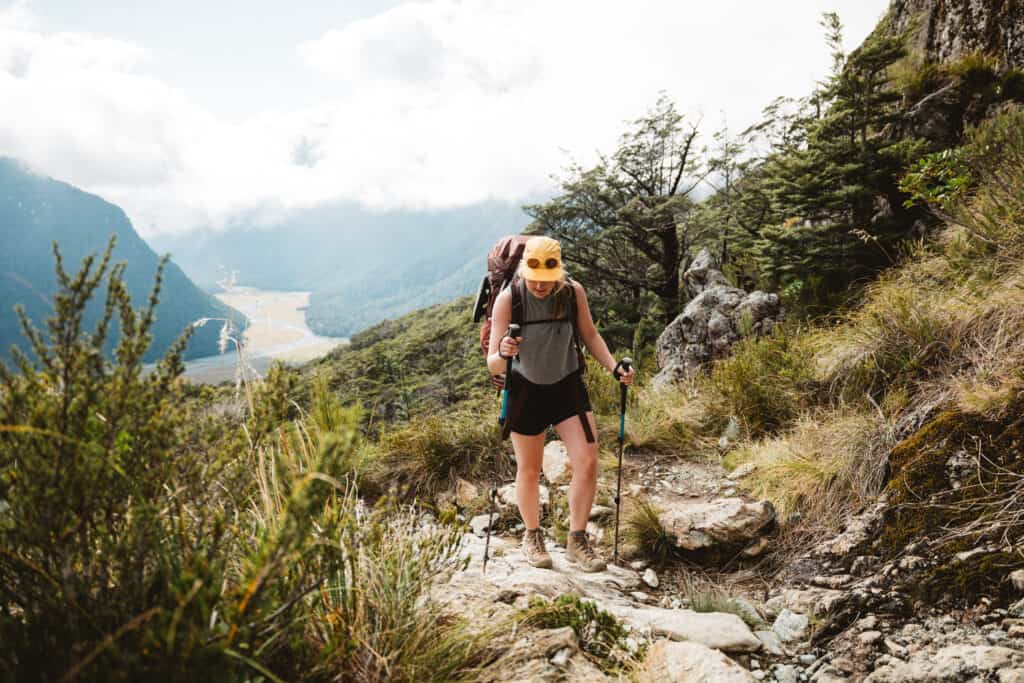
6. A daypack
A good pack is essential for a successful hike in New Zealand. You want to make sure it has enough room to comfortably carry everything you need, along with a few external pockets to keep a few essentials extra handy. We really love this REI Flash 22 Pack and this Mystery Ranch pack.
Along with bringing your snacks and water, sun protection, and extra layers, you should also always bring a small first aid kit, a headlamp, and a form of navigation, like this Garmin inReach Mini, in your pack just in case.
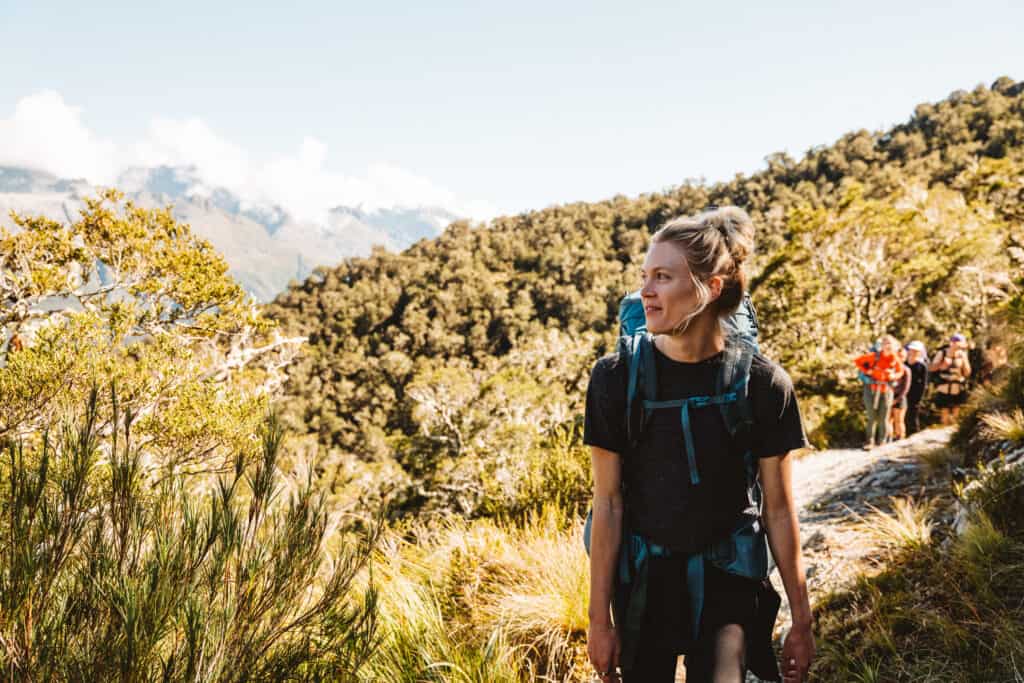
7. Trekking poles
This was the one thing we did not bring to New Zealand and regretted it deeply. Trails in New Zealand can be steep on the way up, which means coming back down the trail can do some serious damage to your knees, or at least make them very sore the following day. If you’re planning to do any multi-day treks or even any day hikes in New Zealand, we highly recommend you bring trekking poles like these ones.
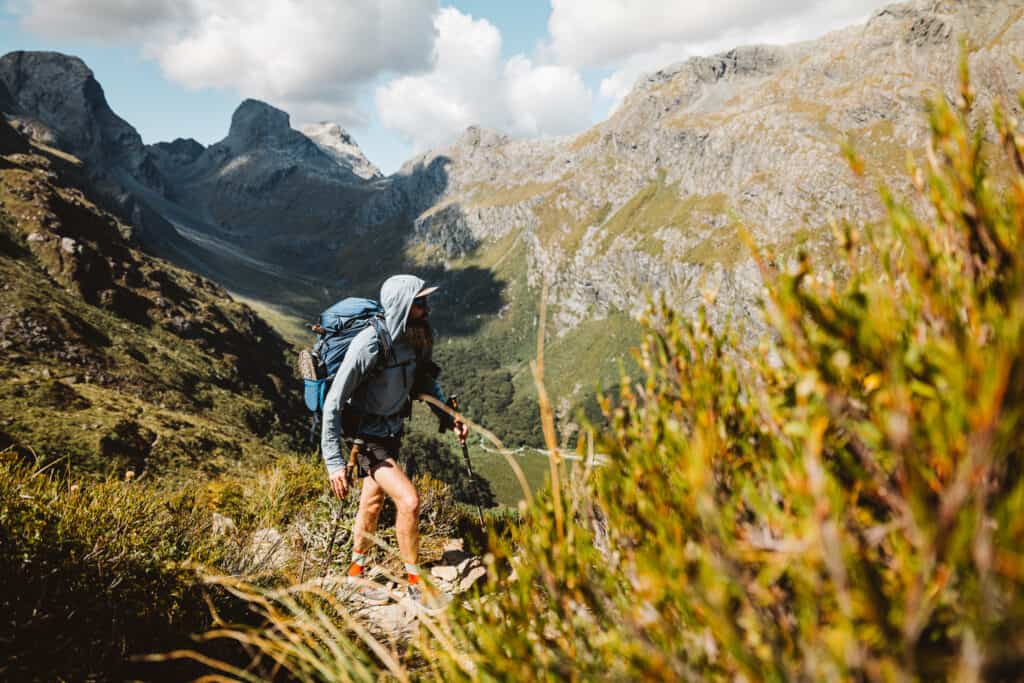
8. A camera
This one is a MUST because the views in New Zealand are absolutely stunning. No need to buy a fancy DSLR camera before you go, because chances are your smartphone probably takes some pretty incredible photos. Just spend a little extra time learning how to take great photos with your iPhone or smartphone and you’ll be set!
And before you get too worried about needing to head out on a multi-day trek to uncover some picturesque views, there are some pretty incredible (and accessible) day hikes in New Zealand too.
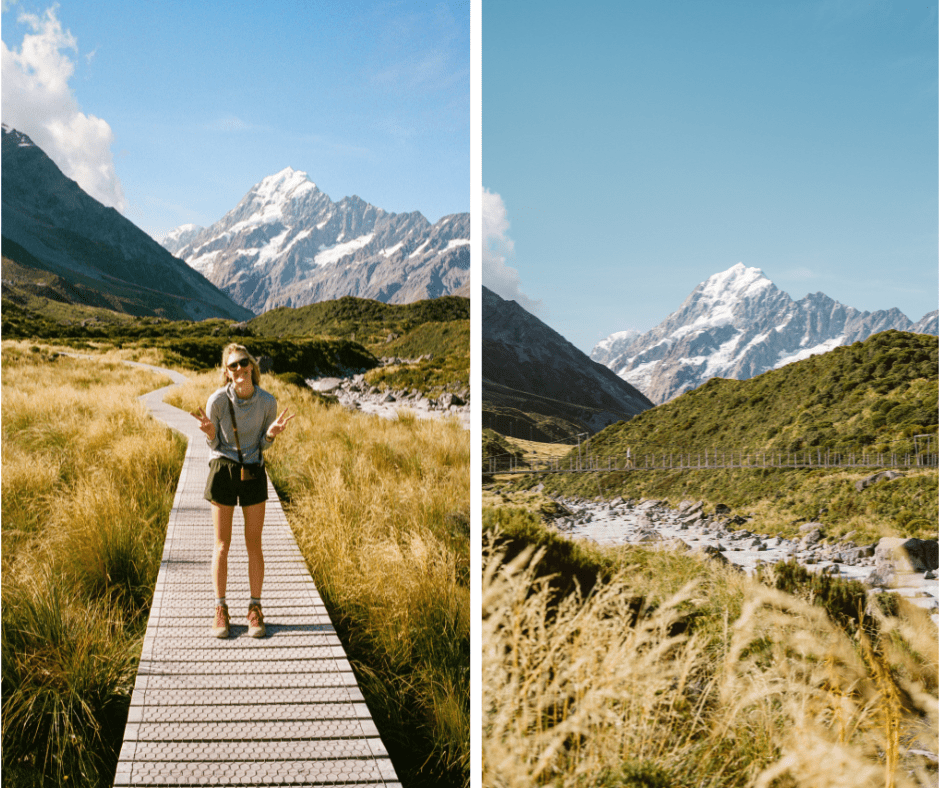
9. A map, guidebook, or downloaded map of the trail
It’s important to always have an understanding of the trail you are planning to hike. Start by asking yourself these questions: how far is the hike round trip? Roughly how long are you planning it will take you? Is the trail popular and well marked? How familiar are you with the area that you’re in?
Even on popular tracks, it’s best to always have a map of the track either in your pack or downloaded onto your phone, just in case you happen to get lost. AllTrails or Gaia are both great apps that allow this capability.
10. A birding book
Nothing will turn you into a birder like spending time on New Zealand trails. There’s over 200 bird species in New Zealand and half of them are found only in New Zealand. Without a lot of other mammals present to watch for, using a book to help you spot these rare and often endangered bird species is a fun past-time while you’re out on the trail.
